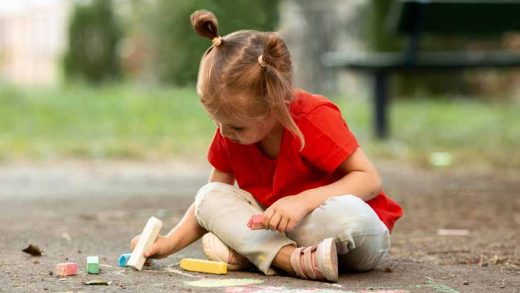The main task as parents and teachers involves teaching good manners for kids. Children learn early how to interact properly with people which leads to strong social and emotional growth over their lifetime. We will study both the value of manners and effective ways to demonstrate them to our young students.
Why Manners Matter in Early Childhood:
Teaching the importance of good manners for kids benefits their lives far beyond using polite words. Children who start out with social etiquette training show better emotional intelligence, achieve school success, and master relationship skills later as they move through life.
Courtesy helps children move through their daily activities easier. Good manners produce better social behavior that children will repeat:
- Form meaningful friendships
- Gain confidence in social situations
- Develop empathy and respect for others
- Experience reduced conflict with peers
- Receive positive attention from adults
The Essential 10 Good Manners Every Preschooler Should Learn:
While there are many social graces to master, let’s focus on 10 Good Manners that create a strong foundation for preschoolers:
- Using “Please” and “Thank You”:
- Greeting Others Appropriately:
- Not Interrupting:
- Table Manners:
- Covering Mouth When Coughing or Sneezing:
- Knocking Before Entering:
- Speaking in an Indoor Voice:
- Listening When Others Speak:
- Sharing and Taking Turns:
- Apologizing Sincerely:
Polite expression starts with basic yes please and thank you. Children learn to use these phrases after seeing adults repeat them regularly. To help your kids learn these expressions better turn the effort into a special game by marking how often family members use them throughout the day.
Teaching children basic greetings including saying hello and goodbye plus proper eye contact shows them how to recognize others. Teach children different ways to say hello through hands-on activities that include puppet shows and stuffed animals.
This can be challenging for excited preschoolers! Teach them to wait their turn by implementing a simple signal, like touching your arm, when they need to speak while you’re talking to someone else. Remember to acknowledge their patience when they practice this skill.
Basic table etiquette teaches children to start eating only when everyone has received their plates and to keep their seat throughout the meal. Make mealtime practice enjoyable by having teddy bear picnics where everyone demonstrates proper dining behavior.
In our post-pandemic world, this manner has taken on new significance. Make it memorable by teaching children to “catch their coughs like a superhero” in their elbow.
Respect for privacy starts early. Turn this into a fun activity by creating a pretend door where children can practice knocking and waiting for permission to enter.
Help children understand different voice levels through the “voice thermometer” concept – whisper, indoor voice, outdoor voice. Make it interactive by playing the “quiet/loud game” where they adjust their volume based on your signals.
Encourage active listening by modeling it yourself. When children tell stories, give them your full attention and ask engaging questions. This teaches them the value of being an attentive listener.
While challenging for preschoolers, these skills are essential for social development. Use timers, songs, or counting methods to make turn-taking more concrete and manageable.
Teaching children to recognize when they’ve made a mistake and apologize meaningfully helps develop emotional intelligence and responsibility.
Effective Modeling Strategies:
The key to teaching good manners for kids lies in consistent modeling and positive reinforcement. Here are some effective strategies:
Make It Fun:
Transform manners practice into engaging games and activities. For example:
- Host a “fancy dinner party” where children can practice table manners
- Create role-play scenarios with stuffed animals demonstrating polite behavior
- Use puppet shows to act out social situations and appropriate responses
Provide Immediate Positive Reinforcement:
Express positive praise to your child immediately after you spot them using polite behaviors. Every time you see your child say thank you to another child give him a special reward. That was very polite!”
Create Visual Reminders:
Use pictures or simple charts to remind children of expected behaviors. These visual cues can help reinforce the importance of good manners for kids without constant verbal reminders.
Be Consistent:
The body takes in new knowledge better when practiced repeatedly in a reliable environment. Make sure everyone who takes care of your child follows the same rules about proper behavior.
Common Challenges and Solutions:
Teaching manners to preschoolers isn’t always smooth sailing. Here are some common challenges and ways to address them:
Challenge: Forgetting in Exciting Moments
Solution: Create gentle reminder signals or codes that don’t embarrass the child. A simple touch on the shoulder or predetermined hand signal can prompt them to remember their manners.
Challenge: Resistance to Using Manners
Solution: Make it rewarding and fun rather than punitive. Consider creating a “manners mission” where children earn special privileges or rewards for consistently demonstrating good manners.
Challenge: Inconsistency Between Different Settings
Solution: Show children that polite actions work differently at each location but stay true to basic standards of respect.
Long-term Benefits:
The importance of good manners for kids extends well beyond childhood. Children who develop strong social skills through good manners often experience:
- Greater success in school and future careers
- Stronger relationships with peers and adults
- Higher self-confidence in social situations
- Better conflict resolution skills
- More positive interactions in various social settings
Showing good manners to preschoolers at a young age will help them succeed in social situations while being emotionally healthy. When we blend learning methods with interactive lessons for young children we teach them basic life skills for successful living.
Your child will grow in manners as they move forward through time. Stay positive when your child moves forward and steadily practices good behavior. Live by the actions you expect them to follow. Going beyond rules good manners teach children to respect other people while treating them with generosity and understanding which makes them better members of society.
Take time each day to practice and reinforce these important social skills, and watch as your preschooler develops into a polite, considerate individual who understands the true importance of good manners for kids in building positive relationships and navigating the social world with confidence.









